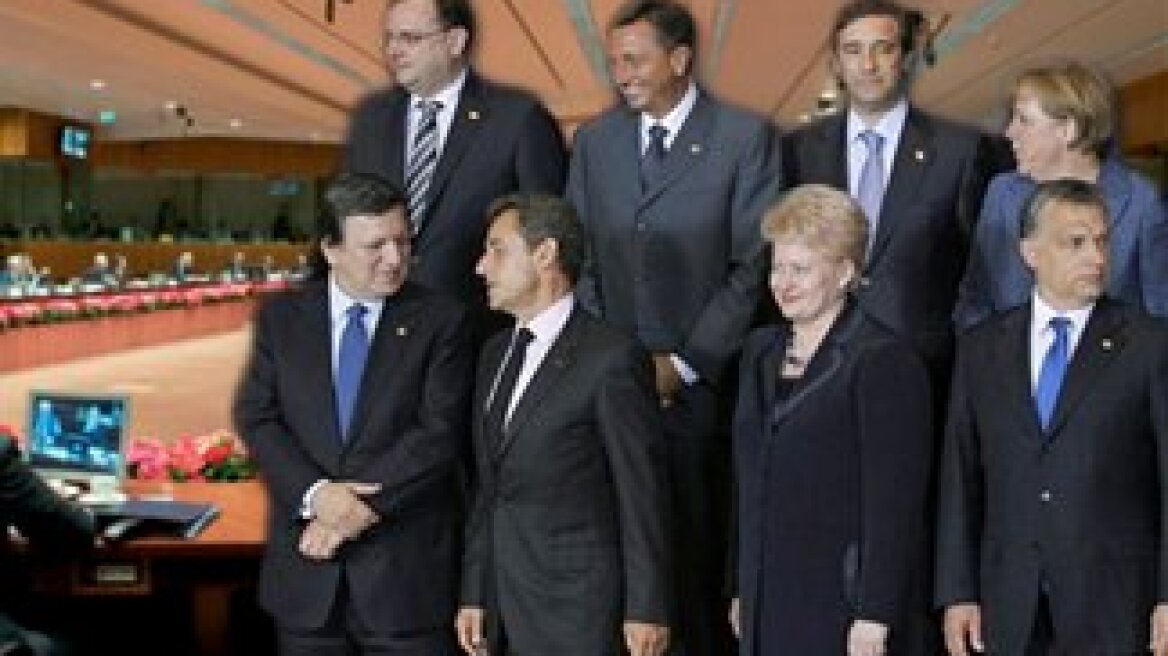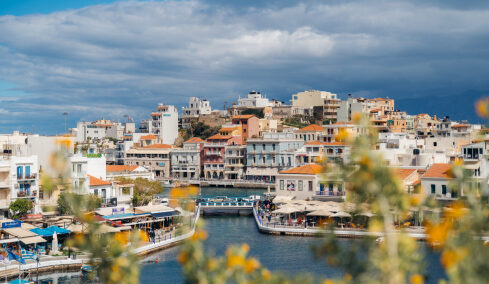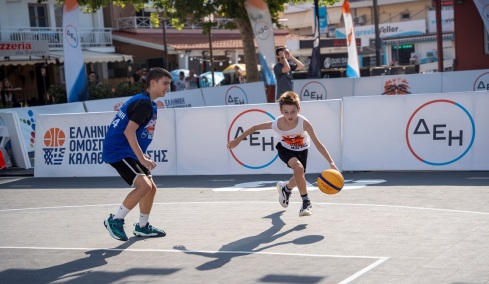
Rough times for Greece in the summit
Rough times for Greece in the summit
A few hours after the meeting of the political leaders, the Greek PM will appear at the Summit having secured the consent of the three political parties for the extent to which he can negotiate. However, the "red lines" of Greece stand far from the Troika prerequisites for the completion of the agreement and the new loan contract.

UPD:
"If Greeks are not able to deal with their own, then there should be stronger political direction and control from the outside, for example by the European Union."
This challenging statement by vice president and federal minister of Economics of Germany Philipp Rösler reflects the unfriendly atmosphere that Lucas Papademos will encounter in Brussels and the summit.
A few hours after the meeting of the political leaders, the Greek PM will appear at the Summit having secured the consent of the three political parties for the extent to which he can negotiate. However, the "red lines" of Greece stand far from the Troika prerequisites for the completion of the agreement and the new loan contract.
The truth is that Greece will be at the epicentre of discussions between European leaders and the situation does not look positive, something which was also emphatically pointed out by German Finance minister Wolfgang Schäuble, who warned that although our European partners are eager to help, "if the country does not convince it’s progressing with the consolidation of its finances, the Eurozone can refuse to fund a new rescue plan for Greece, thus pushing it into default."
The meaning is clear: "either you do what we ask, or you default." And now Greece is called upon to answer in practice if it will confirm the view of many German politicians - not all of them to be honest - that we need "political guidance and control in implementing our reforms."
"We expect that Greece will be more active on the political level. We are not talking about reducing costs, but about reforms. And we have not seen any progress so far." Thus spoke Austrian Maria Fekter, who is also expected to make Papademos’ life more difficult. However, the official line, as expressed by German chancellor Angela Merkel in Davos, is that they cannot make an immediate decision since among other things, the infamous Troika report on the Greek economy is not yet ready.
This challenging statement by vice president and federal minister of Economics of Germany Philipp Rösler reflects the unfriendly atmosphere that Lucas Papademos will encounter in Brussels and the summit.
A few hours after the meeting of the political leaders, the Greek PM will appear at the Summit having secured the consent of the three political parties for the extent to which he can negotiate. However, the "red lines" of Greece stand far from the Troika prerequisites for the completion of the agreement and the new loan contract.
The truth is that Greece will be at the epicentre of discussions between European leaders and the situation does not look positive, something which was also emphatically pointed out by German Finance minister Wolfgang Schäuble, who warned that although our European partners are eager to help, "if the country does not convince it’s progressing with the consolidation of its finances, the Eurozone can refuse to fund a new rescue plan for Greece, thus pushing it into default."
The meaning is clear: "either you do what we ask, or you default." And now Greece is called upon to answer in practice if it will confirm the view of many German politicians - not all of them to be honest - that we need "political guidance and control in implementing our reforms."
"We expect that Greece will be more active on the political level. We are not talking about reducing costs, but about reforms. And we have not seen any progress so far." Thus spoke Austrian Maria Fekter, who is also expected to make Papademos’ life more difficult. However, the official line, as expressed by German chancellor Angela Merkel in Davos, is that they cannot make an immediate decision since among other things, the infamous Troika report on the Greek economy is not yet ready.
"At this meeting we will discuss improving Europe's competitiveness. Ultimately all budget measures depend on how we establish stable economic growth across the Eurozone," said a senior European Commission official on Deutsche Welle.
Issues such as the capital adequacy of the European support mechanism, inextricably tied to the decisions on Greece, will be high on the "hot potatoes" list of the summit.
Nobody forgets that the European Commission and the IMF continue to require increased funds for the mechanism, while Germany insists on a cap on the already agreed resources. In any case, the session is crucial. Obviously, Greece is not the only problem as Portugal may also be added in the official agenda.
Portugal also in the agenda
Portugal has seen its sacrifices and efforts falling short of its targets and now also faces the possibility of requesting yet another rescue package. António Saraiva, the president of the Federation of Industries of Portugal, believes that the country will be forced to seek additional help to finance its economy.
And we should not forget that Lisbon is already receiving a 78bil-euro funding for three years from the EU and the IMF which, as it seems, is not enough.
Issues such as the capital adequacy of the European support mechanism, inextricably tied to the decisions on Greece, will be high on the "hot potatoes" list of the summit.
Nobody forgets that the European Commission and the IMF continue to require increased funds for the mechanism, while Germany insists on a cap on the already agreed resources. In any case, the session is crucial. Obviously, Greece is not the only problem as Portugal may also be added in the official agenda.
Portugal also in the agenda
Portugal has seen its sacrifices and efforts falling short of its targets and now also faces the possibility of requesting yet another rescue package. António Saraiva, the president of the Federation of Industries of Portugal, believes that the country will be forced to seek additional help to finance its economy.
And we should not forget that Lisbon is already receiving a 78bil-euro funding for three years from the EU and the IMF which, as it seems, is not enough.
UPD:
Ακολουθήστε το protothema.gr στο Google News και μάθετε πρώτοι όλες τις ειδήσεις
Δείτε όλες τις τελευταίες Ειδήσεις από την Ελλάδα και τον Κόσμο, τη στιγμή που συμβαίνουν, στο Protothema.gr
Δείτε όλες τις τελευταίες Ειδήσεις από την Ελλάδα και τον Κόσμο, τη στιγμή που συμβαίνουν, στο Protothema.gr
ΡΟΗ ΕΙΔΗΣΕΩΝ
Ειδήσεις
Δημοφιλή
Σχολιασμένα






































